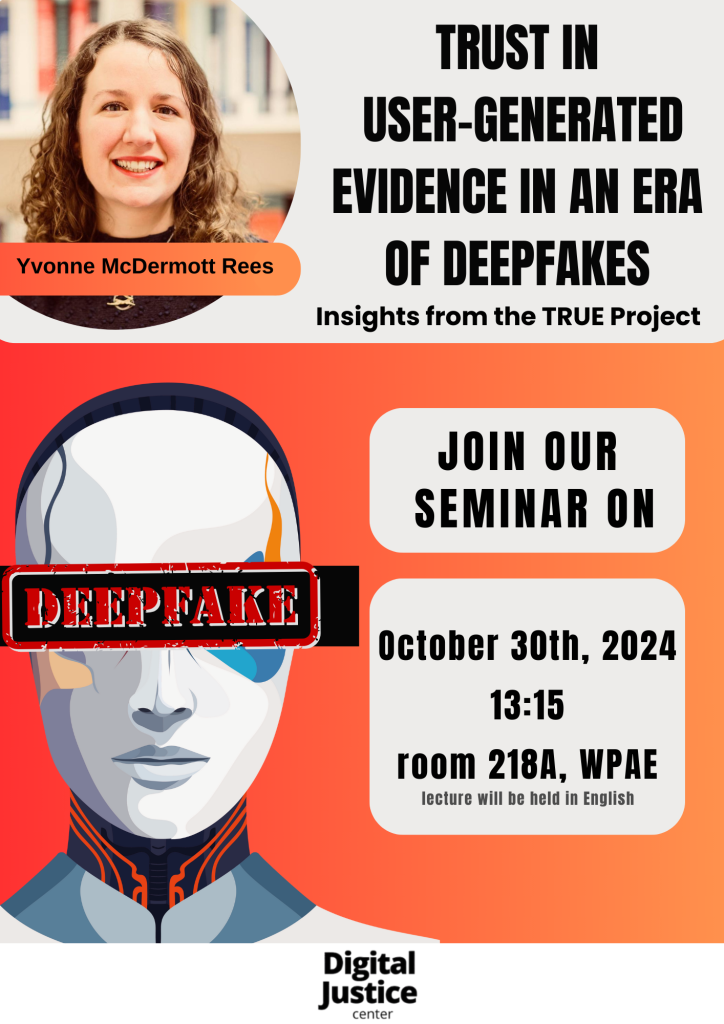
📢 Open Lecture Announcement 📢
How does the rise of deepfakes impact trust in critical human rights evidence captured by everyday people?
We are thrilled to invite you to an open lecture by Professor Yvonne McDermott Rees from Swansea University, UK. Join us as she explores the fascinating topic:
“Trust in User-Generated Evidence in an Era of Deepfakes: Insights from the TRUE Project”
- 🗓 Date: Wednesday, 30th October 2024
- ⏰ Time: 13:15
- 🗣️Language: English
- 📍 Venue: Room 218A, ul. Uniwersytecka 22-26 (Faculty of Law, Administration and Economics, University of Wroclaw)
In a world where mobile devices capture mass human rights violations, the rise of deepfakes challenges the trust in such evidence. This lecture will unveil the findings of the multi-disciplinary TRUE project, which addresses the critical issue of how deepfakes affect the credibility of user-generated content in legal and human rights contexts. Professor McDermott Rees, an expert in international law, will offer her insights into this emerging challenge.
Don’t miss this unique opportunity to learn from one of the foremost researchers in the field!
👩🏫Yvonne McDermott Rees is Professor of Law at the Hillary Rodham Clinton School of Law, Swansea University, UK. Yvonne is the author of, amongst others, Fairness in International Criminal Trials (Oxford University Press, 2016) and Proving International Crimes (Oxford University Press, forthcoming 2024). She is currently Principal Investigator on the TRUE project, a £1.2 million project selected for funding by the European Research Council and funded by UK Research and Innovation, which examines the impact of the rise of deepfakes on trust in user-generated evidence of human rights violations. Yvonne is a Legal Advisor to the Global Legal Action Network (GLAN) and a Master of the Bench of the Honourable Society of the Inner Temple.
Full lecture description 👇
Information recorded by ordinary citizens on personal devices plays an increasingly important role in accountability processes. Across the world, advances in mobile phone technology and internet access mean that millions of important photographs and videos depicting mass human rights violations have been, and will continue to be, created and shared online. Yet, at the same time, the public is increasingly confronted with examples of deepfakes and synthetic media, which are only likely to become more widespread, advanced, and difficult to detect as the technology progresses. Much of the literature to date has expressed a concern that the rise in deepfakes will lead to mass mistrust in user-generated evidence, and that this in turn will decrease its epistemic value in legal proceedings and human rights accountability processes. This may well be the case, but no study has yet empirically tested that assumption. This lecture outlines some of the key findings to date from the TRUE project, a large multi-disciplinary project, which seeks to address this important evidence gap.

